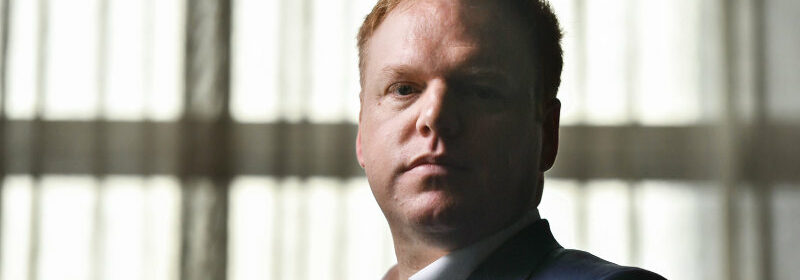Whistleblowers must not be sacrificed on the altar of law

Commonwealth shield laws supposed to protect whistleblowers have utterly failed to stop the prosecution of a public servant who risked all to reveal the unconscionable conduct of the Australian Taxation Office. Now it seems only Attorney-General Mark Dreyfus can stop him being sacrificed on a seemingly unalterable altar of law.
Richard Boyle worked in the ATO’s debt recovery division in Adelaide and made headlines in 2018 when he blew the whistle on aggressive debt recovery tactics used by the Tax Office, revealed in a joint media investigation by The Sydney Morning Herald, The Age and the ABC’s Four Corners. He was charged in 2019 and faces 24 counts, including of recording private phone calls and taking photographs of taxpayer details.
He applied for immunity on 23 of the charges under the Public Interest Disclosure Act, the Commonwealth whistleblowing shield law for public servants, enacted by Mark Dreyfus during his first stint as attorney-general in 2013. But on Monday, South Australia’s District Court rejected Boyle’s application for immunity. He is due to go to trial in October, with a life sentence possible if convicted.
ATO whistleblower Richard Boyle.Credit:Joe Armao
Depending on one’s point of view, whistleblowers share the same hero/villain persona captured by the slogan one man’s terrorist is another man’s freedom fighter. After the September 11 attacks, governments became more secretive across a number of fronts. In Australia, several whistleblowers such as Boyle emerged to reveal nefarious conduct at, what has turned out to be, great personal cost.
The most famous/infamous is WikiLeaks founder Julian Assange. Various Australian governments have been wringing their hands since the US launched a criminal investigation into his activities and he fled to asylum in 2012. Nothing has come of whatever behind-the-scenes efforts have been mounted by Labor and Coalition federal governments. Assange remains in an English jail.
Closer to home, former military lawyer David McBride is facing a jury trial on five charges, including unauthorised disclosure of information, theft of Commonwealth property and breaching the Defence Act. He shone a light on allegations of Australian special forces committing war crimes in Afghanistan, disclosing classified documents to the media throughout the middle of the past decade. The resulting Brereton report into the allegations found credible evidence of war crimes by Australian special forces, including 39 murders, executions and allegations of torture.
In 2013, the offices of Canberra lawyer Bernard Collaery were raided by government security officers who seized files relating to a witness in a case brought by the East Timor government against the Australian government over the bugging of the East Timor cabinet offices during negotiations for a petroleum and gas treaty in 2004. Collaery was subsequently charged with conspiring to release classified information about an alleged spying operation in East Timor.
Less than two months after Labor won the federal election, Dreyfus ordered the Commonwealth to drop Collaery’s prosecution. He has similarly come under pressure to halt the prosecutions of Boyle and McBride but has so far declined.
Secrecy offences play an important role in preventing the unauthorised disclosure of information, and Dreyfus has now flagged the start of public consultations as part of a review of Commonwealth secrecy offences.
He said multiple reviews had “raised concerns about the number, inconsistency, appropriateness and complexity of Commonwealth secrecy offences”.
The cases of Boyle and McBride most surely do raise concerns about the inconsistency and appropriateness of secrecy laws. The court’s decision that the Public Interest Disclosure Act did not cover Boyle’s ATO whistleblowing reveals the law as utterly broken.
Whistleblowers should be protected, not prosecuted. When they reveal errant governments and businesses, they can help make Australia a better place. Our laws need to reflect that and Dreyfus needs to intervene to drop both cases, just as he dropped the Collaery case.
Patrick Elligett sends an exclusive newsletter to subscribers each week. Sign up to receive his Note from the Editor.
Most Viewed in Politics
From our partners
Source: Read Full Article
